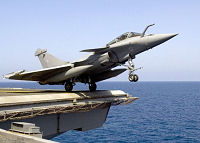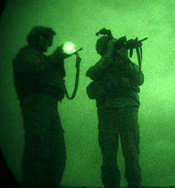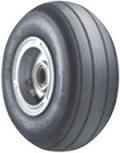 The Directorate of Defense Trade Controls issued a Federal Register notice, printed today, that lifted the 1997 statutory debarment of AdComm, Inc. AdComm became debarred after it purchased the assets of a debarred party, Electrodyne, which had been debarred based on its conviction for violations of the Arms Export Control Act. Debarred parties cannot be involved in any transactions involving the export of defense articles or defense services.
The Directorate of Defense Trade Controls issued a Federal Register notice, printed today, that lifted the 1997 statutory debarment of AdComm, Inc. AdComm became debarred after it purchased the assets of a debarred party, Electrodyne, which had been debarred based on its conviction for violations of the Arms Export Control Act. Debarred parties cannot be involved in any transactions involving the export of defense articles or defense services.
As some may remember, Electrodyne had several contracts with NASA and the U.S. Air Force to build components to be used in communications, radar and weapons systems. Electrodyne then contracted with companies in Russia and Ukraine to build the components, thus disclosing, without a license and in contravention of the Arms Export Control Act, technical data controlled by the International Traffic in Arms Regulations (“ITAR”).
In 1996, Electrodyne pleaded guilty to these charges, but that was hardly the end of the matter. The docket sheet shows two appeals by Electrodyne of the sentences imposed by the District Court and it was not until the third sentencing, in 2001, that the matter became final. In the first appeal, the Third Circuit vacated the sentence by the district court and remanded for further proceedings. And although the second appeal only concerned the sentence imposed by the district court in its second go-round on sentencing, the Third Circuit reversed the judgment of the district court. This reversal, it might be argued, effectively eliminated the basis for the statutory debarment of Electrodyne, although it might also be argued that this was sloppy language and that the court didn’t intend to reverse the conviction but just to vacate the second sentence.
In all events, a statutory debarment remains in place, even after a reversal of the conviction, unless the debarred party petitions DDTC to lift the debarment on that basis, something AdComm, by that time standing in Electrodyne’s shoes, didn’t appear to have done. More interestingly, the debarment order contained the standard language that the period of debarment was normally three years after conviction and that after that period the debarred party could petition DDTC to lift the debarment. It’s curious, then, that this debarment was in place for almost twelve years. Certainly Adcomm, as merely a third-party successor to Electrodyne that hadn’t been involved in the wrongdoing at issue, would have had a good basis to go into DDTC after three years, i.e. in 2000, to lift the debarment.

 Posted by
Posted by  Category:
Category: 


 Luxembourg-based Qioptiq S.A.R.L.
Luxembourg-based Qioptiq S.A.R.L.  The saga over conflicts between the Department of State and the Department of Commerce regarding which agency has jurisdiction over exports of aircraft parts continues with the latest
The saga over conflicts between the Department of State and the Department of Commerce regarding which agency has jurisdiction over exports of aircraft parts continues with the latest  Regular readers of this blog know that an occasional feature is highlighting press releases by companies that have received their registration number from the Directorate of Defense Trade Controls (“DDTC”) and that can’t resist engaging in, shall we say, a little creative elaboration on the significance of registration. Hey, we’ve spent all that money on the registration fee, we ought to get something from it, right?
Regular readers of this blog know that an occasional feature is highlighting press releases by companies that have received their registration number from the Directorate of Defense Trade Controls (“DDTC”) and that can’t resist engaging in, shall we say, a little creative elaboration on the significance of registration. Hey, we’ve spent all that money on the registration fee, we ought to get something from it, right?

